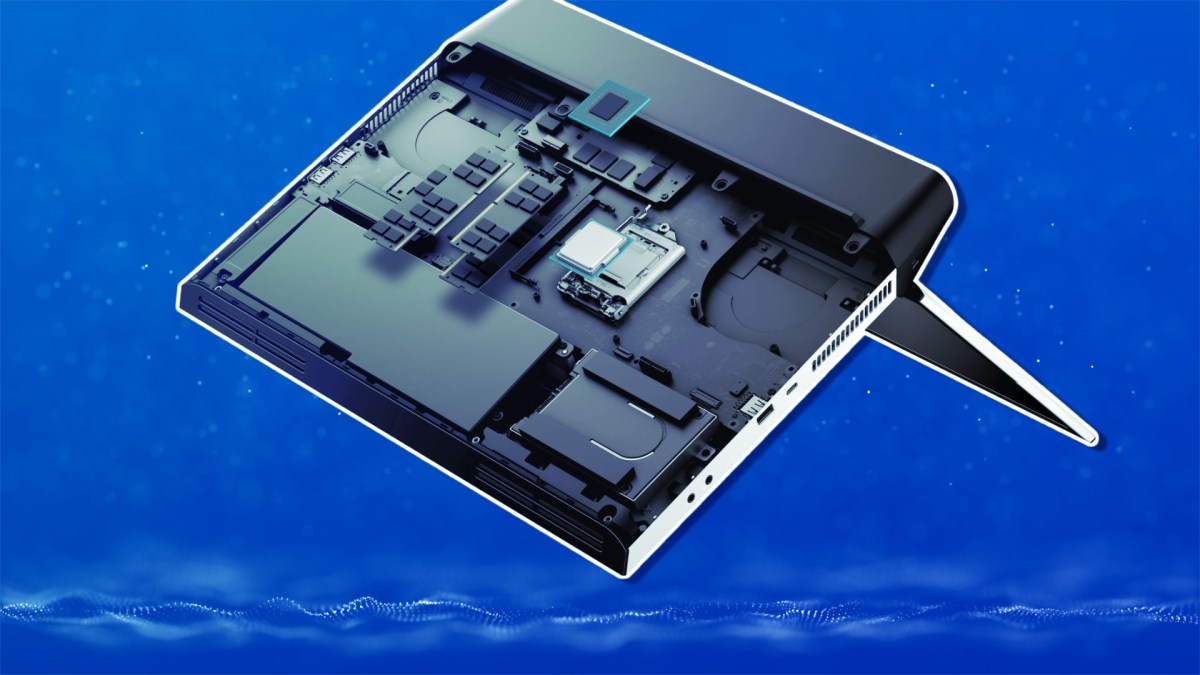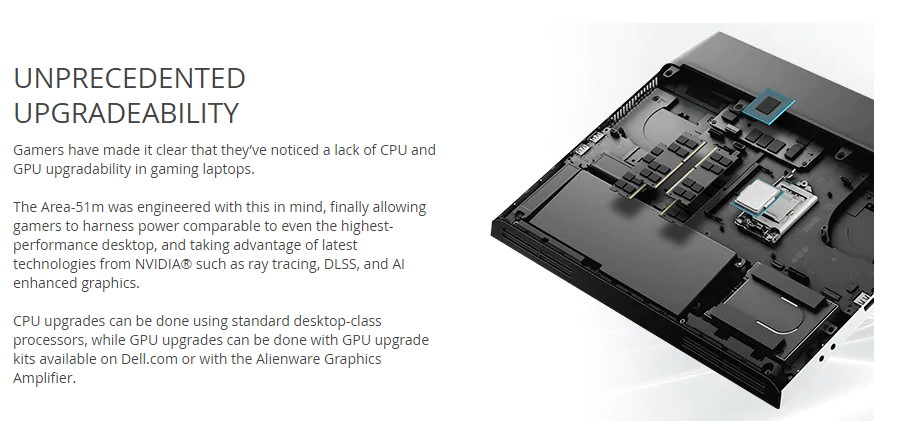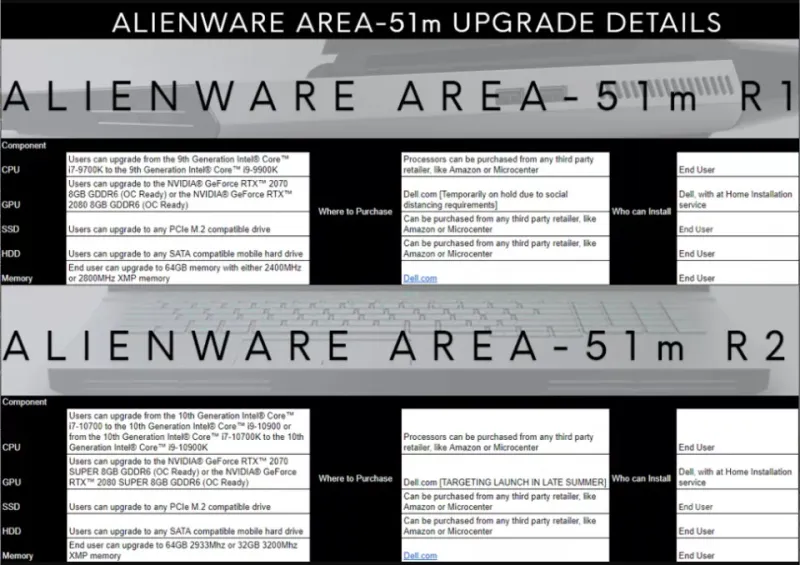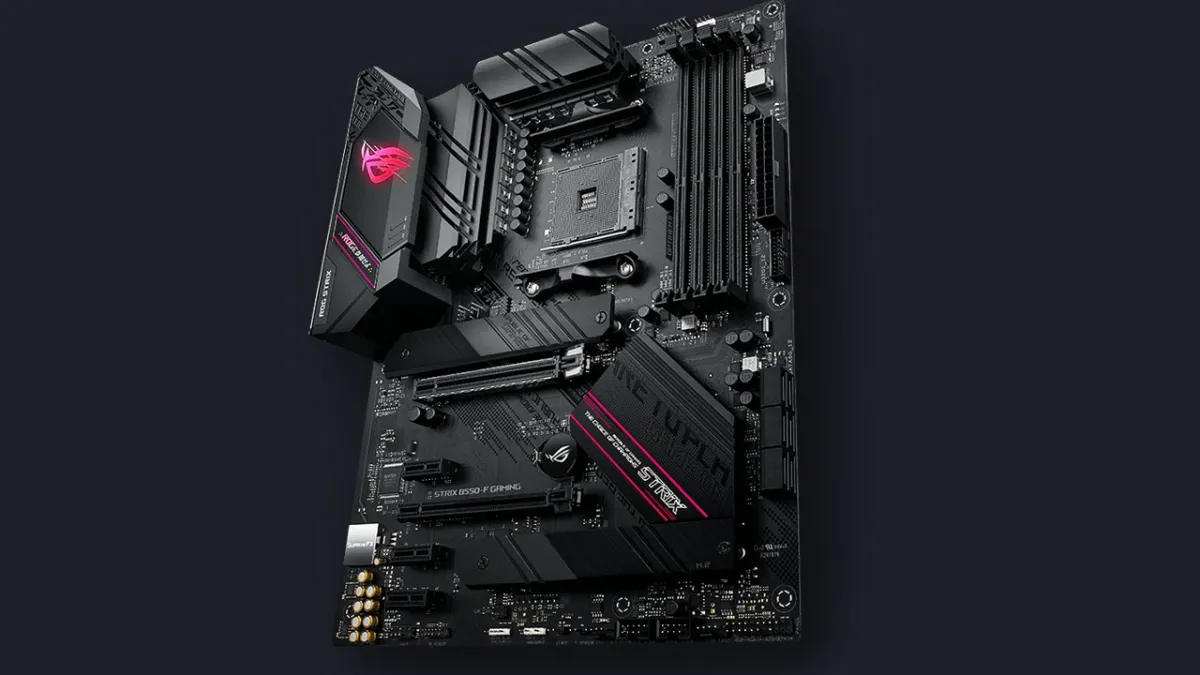The term ‘stretching the truth’ is a well-known saying used when someone tells the truth but either omits or exaggerates certain details as a way to deceive the listener. That’s essentially what the current Dell lawsuit is for, involving it, its Alienware laptops and an American man named Robert Felter. The matter involves the upgradability of the Dell-made Alienware Area 51-m R1 gaming laptop which Dell claims has to be more upgradeable than it is in reality.
The laptop was revealed in 2019 and advertised to have a fully user-upgradeable CPU and GPU, something that’s quite rare in the world of gaming laptops.
According to the lawsuit, Dell’s Alienware representatives initially told the media that the CPU of the Area 51-m was upgradable as long as it used Intel’s Z390 chipset. Alienware Area 51-m R1 laptops then shipped using Intel CPUs ranging from the 9th-gen core desktop processors up to the Core i9-9900K. As for the GPU, Dell created its Dell Graphics Form Factor modules for Nvidia graphic cards. But, the case against Dell is that there are more limitations than what was told to the public.
Component chaos
As it turns out, those with the top-of-the-line model were left out in the cold in terms of upgrades. David W. Kani, a lawyer, told Tom’s Hardware that “Dell’s advertisement to the public didn’t place any restrictions on the upgradeability of the laptop. They also never disclosed that those with the highest spec CPU and/or GPU that their device would not be upgradeable.”
Dell’s own advertisements indicate that all models would be covered by the promise of upgradeability, thus leading consumers to buy the laptops with the impression that any compatible CPUs and GPUs would be supported in the future. The snapshot below, taken today just before publication, is from Dell’s own website where, again, no restriction of components is mentioned.
To make matters worse, back in May 2020, Dell released the Alienware Area 51m R2 — a refreshed model of the laptop. This added support for 10th gen Intel Core desktop CPUs, and more Nvidia GPUs. Support for the AMD Radeon RX 5700M was also added with this model. But, it wasn’t until the following month of June that Dell came forth and finally mentioned the upgradeability limitations of both models of the Area 51-m.
How Dell ultimately shot itself in the arm has come out in the court case — the lack of upgradeability of the CPU to the new Intel 10th-gen units and the lack of upgradeability of the GPU to the Nvidia RTX Super 2000 series. This is a problem. Consumers would have to end up buying a new model or a laptop from an entirely different manufacturer with similar specifications; both options are very expensive.
If Dell were more transparent and concise with its messaging, then all of these seemingly “little” caveats wouldn’t be adding up the way they are right now. For now, the case is still being handled in American courts.






